

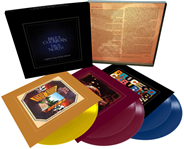
Bruce Douglas Cockburn OC (/ˈkoʊbərn/; born May 27, 1945) is a Canadian singer-songwriter and guitarist. His song styles range from folk to jazz-influenced rock and his lyrics cover a broad range of topics including human rights, environmental issues, politics, and Christianity. Cockburn has written more than 300 songs on 33 albums over a career spanning 40 years, of which 22 have received a Canadian gold or platinum certification as of 2018, and he has sold over one million albums in Canada alone.
Cockburn was born in 1945 in Ottawa, Ontario, and spent some time at his grandfather's farm outside of Chelsea, Quebec but he grew up in Westboro, which was a suburb of Ottawa when he was a teenager. His father, Doug Cockburn, was a radiologist, eventually becoming head of diagnostic x-ray at what was then called Ottawa Civic hospital. He has stated in interviews that his first guitar was one he found around 1959 in his grandmother's attic, which he adorned with golden stars and used to play along to radio hits. This was replaced when his parents bought him a Kay archtop that had flat wound strings and a DeArmond pickup after his first guitar teacher, Hank Sims, declared it unplayable.
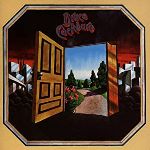
Later he was taught piano and music theory by Peter Hall, the organist at Westboro United Church which Cockburn and his family attended. Cockburn had been listening to jazz and wanted to learn musical composition. Hall encouraged him and, along with his friend Bob Lamble, a lot of time was spent at Hall's house listening to and discussing jazz.
Cockburn attended Nepean High School, where his 1964 yearbook photo states his desire "to become a musician". Nepean's music teacher at the time, Ronald E.J. Milne, said in 1988 that although Cockburn didn't take music, he could often be seen playing guitar. After graduating, he took a boat to Europe and busked in Paris.
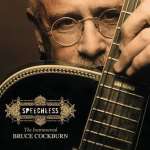
Cockburn attended Berklee School of Music in Boston, where his studies included jazz composition, for three semesters between 1964 and 1966. That year he dropped out and joined an Ottawa band called The Children, which lasted for about a year.
In early 1967 he joined the final lineup of the Esquires. He moved to Toronto that summer to form The Flying Circus with Marty Fisher and Gordon MacBain former Bobby Kris & The Imperials members and Neil Lillie ex-Tripp member. The group recorded some material in late 1967 (which remains unreleased) before changing its name to Olivus in the spring of 1968, by which time Lillie (who changed his name to Neil Merryweather) had been replaced by Dennis Pendrith from Livingstone's Journey. Olivus opened for The Jimi Hendrix Experience and Cream in April 1968. That summer Cockburn broke up the band with the intention of going solo, but ended up in the band 3's a Crowd with David Wiffen, Colleen Peterson, and Richard Patterson, who had been a co-member of The Children. Cockburn left 3's a Crowd in the spring of 1969 to pursue a solo career.
Cockburn's first solo appearance was at the Mariposa Folk Festival in 1967, and in 1969 he was a headliner. In 1970 he released his self-titled, solo album. A single, "Going to the Country", appeared on the RPM Top 50 Canadian Chart.
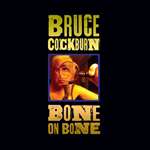
Cockburn's guitar work and songwriting won him an enthusiastic following. His early work featured rural and nautical imagery and Biblical metaphors. Raised as an agnostic, early in his career he became a Christian. Many of his albums from the 1970s refer to Christian themes, which in turn inform his concerns for human rights and environmentalism. His references to Christianity include the Grail imagery of 20th-century Christian poet Charles Williams and the ideas of theologian Harvey Cox.
In 1970 Cockburn became partners with Bernie Finkelstein in the music publishing firm Golden Mountain Music. He won the Juno, for Canadian Folksinger of the Year, three years in a row, 1971–73. He was nominated for Canadian Folksinger of the Year and Male Vocalist of the Year at the 1974 Juno Awards.
While Cockburn had been popular in Canada for years, he did not have a big impact in the United States until 1979, with the release of the album Dancing in the Dragon's Jaws. The album's first single, "Wondering Where the Lions Are", reached No. 21 on the Billboard Hot 100 in the US in June 1980, earning Cockburn an appearance on NBC's TV show Saturday Night Live. Cockburn's label, True North Records, also signed a distribution deal with Recordi Records in Italy.
Through the 1980s Cockburn's songwriting became increasingly urban, global and political as he became more involved with progressive causes. His political concerns were first hinted at on the albums: Humans, Inner City Front and The Trouble with Normal. They became more evident in 1984, with his second US radio hit, "If I Had a Rocket Launcher" (No. 88 in the US) from the Stealing Fire album. He had written the song a year earlier, after visiting Guatemalan refugee camps in Mexico that were attacked by Guatemalan military helicopters. His political activism continues to the present. His internationalist bent is reflected in the many world music influences in his music, including reggae and Latin music.
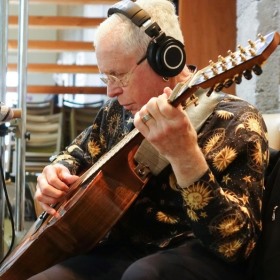
In 1991 Intrepid Records released Kick at the Darkness, a tribute album to Cockburn whose title comes from a phrase in his song "Lovers in a Dangerous Time". It features the Barenaked Ladies' cover of that song, which became their first Top 40 hit and an element in their early success. This lyric was also referenced by U2 in their song "God Part II" from their album Rattle and Hum. Also in 1991, three of Cockburn's songs were listed in a Toronto Star survey among Toronto's top songs of all time.
In the early 1990s, Cockburn teamed with T Bone Burnett for two albums, Nothing but a Burning Light and Dart to the Heart. The latter included a song, "Closer to the Light", inspired by the death of songwriter Mark Heard, a close friend of Cockburn and Burnett. Cockburn frequently refers to Heard as his favourite songwriter and he was one of many artists who paid tribute to Heard on an album and video titled Strong Hand of Love.
In 2001 Cockburn performed as part of the Music Without Borders concert, a benefit for the United Nations Donor Alert Appeal, which raised funds for refugees from Afghanistan, at the Air Canada Centre in Toronto.
In January 2003 Cockburn finished recording his 21st album, You've Never Seen Everything, which features contributions from Emmylou Harris, Jackson Browne, Sam Phillips, Sarah Harmer, Hugh Marsh, Jonell Mosser, Larry Taylor and Steven Hodges. (Taylor and Hodges, formerly of Canned Heat who performed at Monterey and Woodstock in the 1960s, may be known best for their work with Tom Waits).
Some of Cockburn's previously published material had been collected in several albums: Resume, Mummy Dust, and Waiting for a Miracle. His first greatest hits collection was Anything Anytime Anywhere: Singles 1979–2002, released in 2002.

Cockburn performed a set at the Live 8 concert in Barrie, Ontario, on July 2, 2005. Speechless, an instrumental compilation of new and previously released material, was released on October 24, 2005. His 22nd album, Life Short Call Now, was released on July 18, 2006.
Canadian senator and retired general Roméo Dallaire, who is active in humanitarian fundraising and promoting awareness, appeared on stage at the University of Victoria with Cockburn. The October 4, 2008, concert was held to aid the plight of child soldiers.
In 2009 Cockburn travelled to Afghanistan to visit his brother, Medical Officer Capt. John Cockburn, and to play a concert for Canadian troops. He performed his 1984 song "If I Had a Rocket Launcher" and was temporarily awarded an actual rocket launcher by the military. Cockburn has stated that, while unsure of the original Invasion of Afghanistan, he supported Canada's role there.
Cockburn released the studio album Small Source of Comfort in 2011. "Lois on the Autobahn", a cheerful and experiential instrumental recalling "Rouler sa bosse" from Salt, Sun and Time is a tribute to Cockburn's mother, Lois, who succumbed to cancer in 2010.
In 2018, Cockburn's album Bone on Bone, was named Contemporary Roots Album of the Year at the Juno Awards.

Cockburn's songwriting is often political, expressing concern for the environment and the welfare of indigenous peoples. Baker's Biographical Dictionary of Musicians writes, "Cockburn always risked an outspoken stand in his work, taking on issues and morality to the detriment of his popular appeal. No artist since Phil Ochs has taken such strong political stands." He has worked with relief agency Oxfam, travelling to Central America in 1983, and with the International Campaign to Ban Landmines. The song "Mines of Mozambique" (The Charity of Night) reflects his observations of that country during a visit in 1995. Cockburn is affiliated with the Unitarian Service Committee of Canada, twice visiting Nepal with the charity, in 1987 and 2007.
Songs on these themes include "If I Had a Rocket Launcher" (Stealing Fire), an angry response to the plight of refugees in Central America; "Stolen Land" (Waiting for a Miracle), about the land claims of British Columbia's Haida people; and "If a Tree Falls" (Big Circumstance)—one of Cockburn's best-known songs—decrying the deforestation of the Amazon.

Text is available under the Creative Commons Attribution-ShareAlike License.
Date: June 2020.
Photo Credits:
(1ff) Bruce Cockburn
(unknown/website).